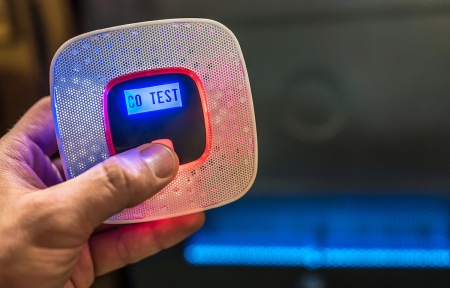There were several DOT Compliance Reviews (audits) conducted on GAWDA members in 2018. In the past, these audits were typically initiated as a security review, and while the inspectors were on site they reviewed other topics such as shipping papers, driver qualification files, alcohol and substance abuse programs, hours of service records, vehicle files and other DOT items as desired. Now that the Safety Measurement System (SMS) is in full swing, we have members with high scores being targeted for an on-site audit. You will also be visited if you request to become a party to a special permit for the first time and have not been rated during a previous visit.
There were two vastly different results of audits completed on GAWDA members this past year. Thankfully, the members where I had done mock DOT audits and training in the past and those that use my suggested DOT filing system had perfect scores and no fines assessed provided they kept the recordkeeping items current.
At sites that had not received training, the results were costly. Based on what the inspectors found and how they perceived the company’s compliance, the penalties ranged from a few hundred dollars to as high as $40,000 per company. Most averaged from $4,000 to $6,000 per audit if penalties were issued.
Roadside Inspections
Roadside audits were also up in 2018, with many inspectors taking a closer look at the shipping papers/manifests and other documentation. We have had several customer tickets/invoices examined and written up because they were given to the inspector when the driver was asked for his/her shipping papers. It is important to remember that a driver should only give the inspector the shipping papers when requested and not any customer tickets/invoices. When asked for the other documents, the driver should make it a point to say that these are customer tickets and invoices and not shipping papers. Inspectors look at the customer tickets to determine hours of service compliance. I always recommend keeping the shipping papers/manifests separate from the customer tickets — a great place is inside the driver’s door pocket along with the emergency response guidebook.
Special Permits and RINs
If you are a party to a special permit, you must keep track of the expiration date and submit the renewal more than 60 days before the expiration date. This is now done through the Pipeline and Hazardous Materials Safety Administration portal found on their website at www.phmsa.dot.gov. This can be difficult to find, so contact me if you need help.
If you requalify cylinders, you must track your Requalification Identification Number (RIN) approval expiration date. Contact the DOT-approved Independent Inspection Agency at least six months before your RIN expires. This allows enough time to schedule an appointment, complete the review and get the application sent in and approved before the current one expires.
avoiding problems and penalties
Make sure that your required DOT recordkeeping and filing systems are in place and up to date. If you need to establish a DOT filing system, please contact me as I have a sample version that has worked great for our members.
The key to making this program work is having a system to remind you of the important dates.





